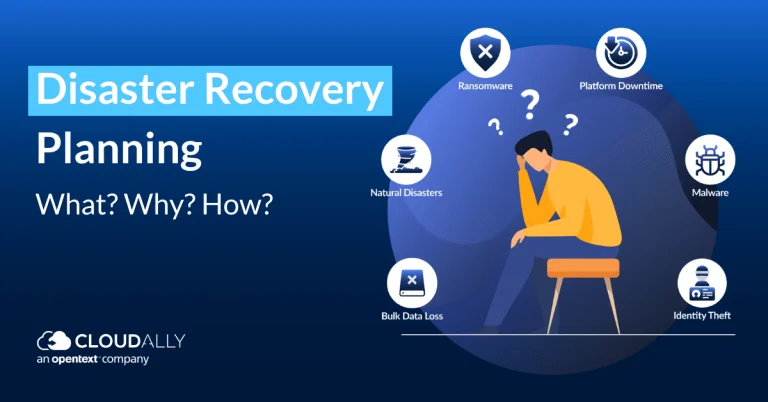Advantages of Cloud Migration for IoT
Cloud computing has revolutionized how companies store, manage, and process data. With cloud-enabled platforms’ flexibility, scalability, and connectivity, businesses can achieve digital transformation, improve efficiency, and drive growth. Integrating cloud computing with IoT takes this innovation to the next level, unleashing unprecedented opportunities for businesses to thrive even faster. The IT Support Marquette team specializes in providing managed cloud services to businesses.
Cloud services and solutions have become integral to the success of the Internet of Things (IoT). With the ability to perform complex tasks required by IoT, several cloud computing services offer inbuilt capabilities such as machine learning, business intelligence tools, and SQL engines. In this article, we will explore the various benefits these cloud services bring to the IoT environment.
6 Advantages of Cloud Migration for IoT
Data Security and Reliability
In today’s data-driven world, protecting sensitive information is crucial for businesses. This is particularly true for IoT industries, where data security has been a top priority. Enterprises have long struggled with whether cloud IoT providers can offer the same reliability and protection as on-premise infrastructure. Additionally, businesses need to ensure that their data is easily accessible whenever it’s required. While on-premise solutions may seem the best choice initially, cloud-based IoT services offer superior accessibility and convenience.
Cloud service providers implement robust security measures that often exceed what most businesses can afford. Unlike the physical world, cybersecurity operates differently, where proximity often correlates with safety. Your data can be better protected when you control who can access and use it. On-premise infrastructure is prone to vulnerabilities, making it less secure. With cloud solutions, enterprises benefit from reliable authentication and encryption protocols, making it difficult for malicious actors to exploit sensitive data. Therefore, the cloud is safer and more reliable for businesses seeking top-notch data security.
Scalability and Flexibility
Cloud migration can offer many advantages when it comes to the Internet of Things (IoT). One of the biggest benefits is scalability and flexibility. With cloud-based IoT solutions, businesses can quickly scale their operations up or down depending on demand without worrying about investing in additional infrastructure or resources. This allows them to remain agile and responsive to changing market conditions while reducing costs and increasing efficiency.
Additionally, cloud-based solutions offer greater flexibility when it comes to data storage and management, making it easier for businesses to access and analyze the information they need in real-time.
Enhanced Data Management and Analytics
The Internet of Things (IoT) has revolutionized data collection and analysis. With the rise of IoT devices, businesses are generating more data than ever, which can be challenging to manage and analyze using traditional methods. Cloud migration for IoT offers a solution to this problem by providing enhanced data management and analytics capabilities.
By migrating IoT data to the cloud, businesses can store and process large volumes of data quickly and efficiently without the need for expensive on-premise hardware. This allows for real-time insights and faster decision-making, which can lead to improved business outcomes. Additionally, cloud-based analytics tools offer advanced features such as machine learning and predictive analytics, which can help businesses gain deeper insights into their data and make more informed decisions.
Integration and Interoperability
Cloud migration fosters integration between IoT devices and existing enterprise systems. Cloud platforms provide robust APIs, protocols, and standards that facilitate integrating various IoT devices and systems seamlessly. This interoperability enables data sharing, collaboration, and the creation of holistic IoT solutions by combining data from multiple sources.
Moreover, the cloud’s ability to connect IoT devices with other cloud-based services and applications opens up endless possibilities for innovation. Organizations can leverage the power of cloud-based services, such as AI, machine learning, and big data analytics, to extract deeper insights and create intelligent IoT applications. This integration empowers organizations to derive more value from their IoT investments and drive digital transformation initiatives.
Cost-effectiveness
Large upfront investments and increased implementation risk associated with an in-house Internet of Things system can be daunting. Additionally, hardware maintenance and IT personnel costs can add up. However, the cloud offers a more favorable perspective. With significantly reduced upfront costs and a flexible pricing scheme based on actual usage, cloud-based IoT solutions have become attractive for enterprises looking to switch to the cloud.
With this business model, you can easily predict costs and eliminate the worry of hardware failure. This is especially important for in-house Internet of Things systems, where hardware failures can lead to significant additional costs and business losses resulting from service downtimes.
Time to Market
By leveraging IoT cloud solutions, businesses can implement their systems much faster and with less effort, resulting in significant cost savings. Although this does mean sacrificing some platform customization, the benefits of a cloud-based infrastructure far outweigh the drawbacks.
In contrast, on-premises IoT systems require extensive data management and analysis capabilities and upgrades to existing network structures to accommodate the increased data traffic. Ultimately, cloud-based IoT solutions are a more profitable choice when the time to market is critical to the success of a business.
Conclusion
The use of the cloud as a platform has become increasingly popular across various industries. With the proliferation of devices, efficient device management and security are now more critical than ever. Cloud platforms provide a comprehensive solution that can help businesses successfully implement IoT. By streamlining device management, the cloud enhances efficiency while also reducing capital expenditure through its agile and flexible integrations. These benefits come at an affordable cost, making cloud-based solutions an attractive option for all companies.
The IoT industry has undergone a major transformation with the emergence of cloud-based services. These services provide businesses with greater computing power, connectivity, and reliability, enabling them to transition from on-premise network infrastructure to cloud platforms. Major tech giants have recognized the importance of this shift towards cloud computing, and have developed their own cloud-based IoT platforms. This development marks a significant milestone in the IoT space, and promises to deliver substantial benefits to businesses.







